Rocksmith claims to be the best way to learn guitar. But is it?
Let me tell you my experience.
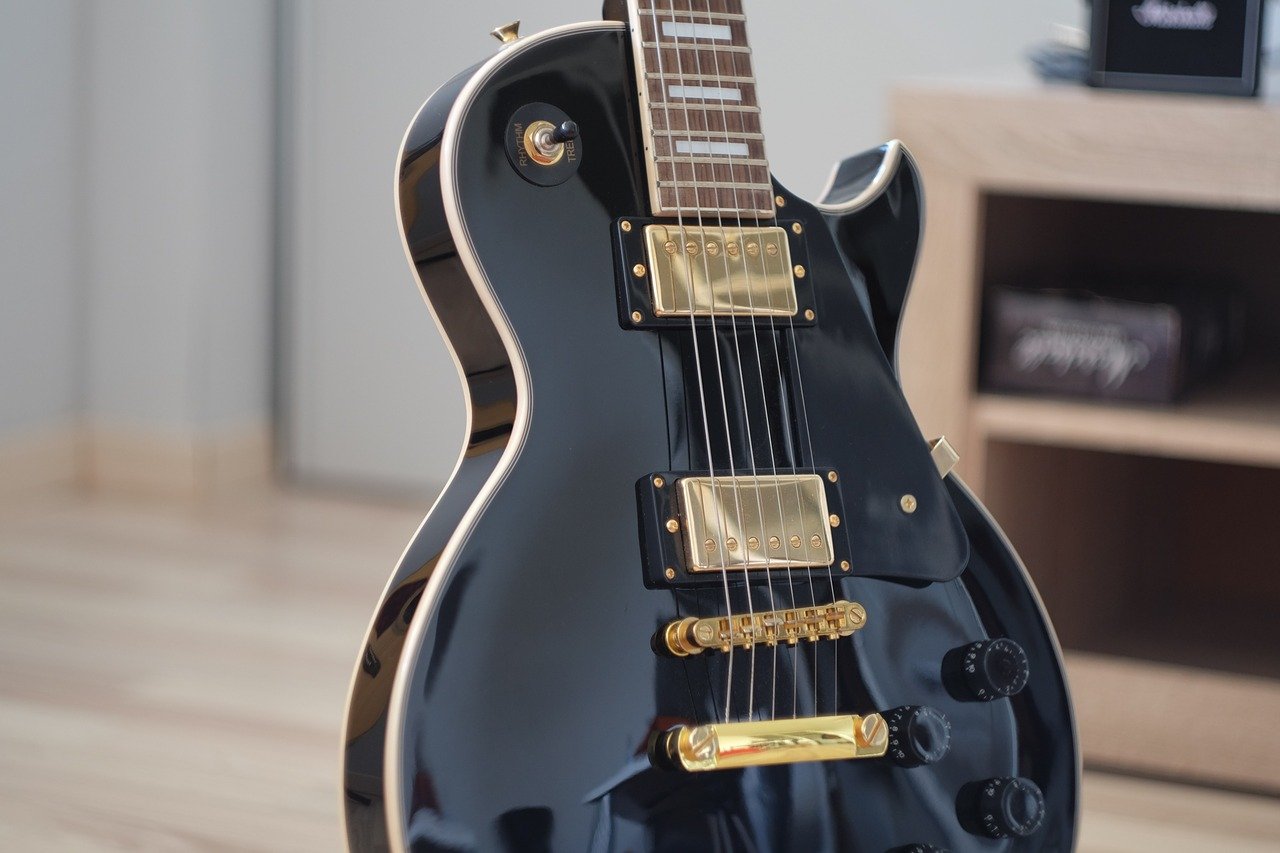
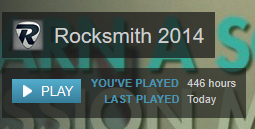
If you are not familiar with Rocksmith, it's a guitar rhythm game, in the veins of Guitar Hero or Rock Band, except that instead of using a plastic guitar with a few buttons, you play real chords and notes with a real guitar. Not a specially made guitar, but any existing guitar, the same one you would plug in an amp, just with a special cable that comes with the game.
Game Modes
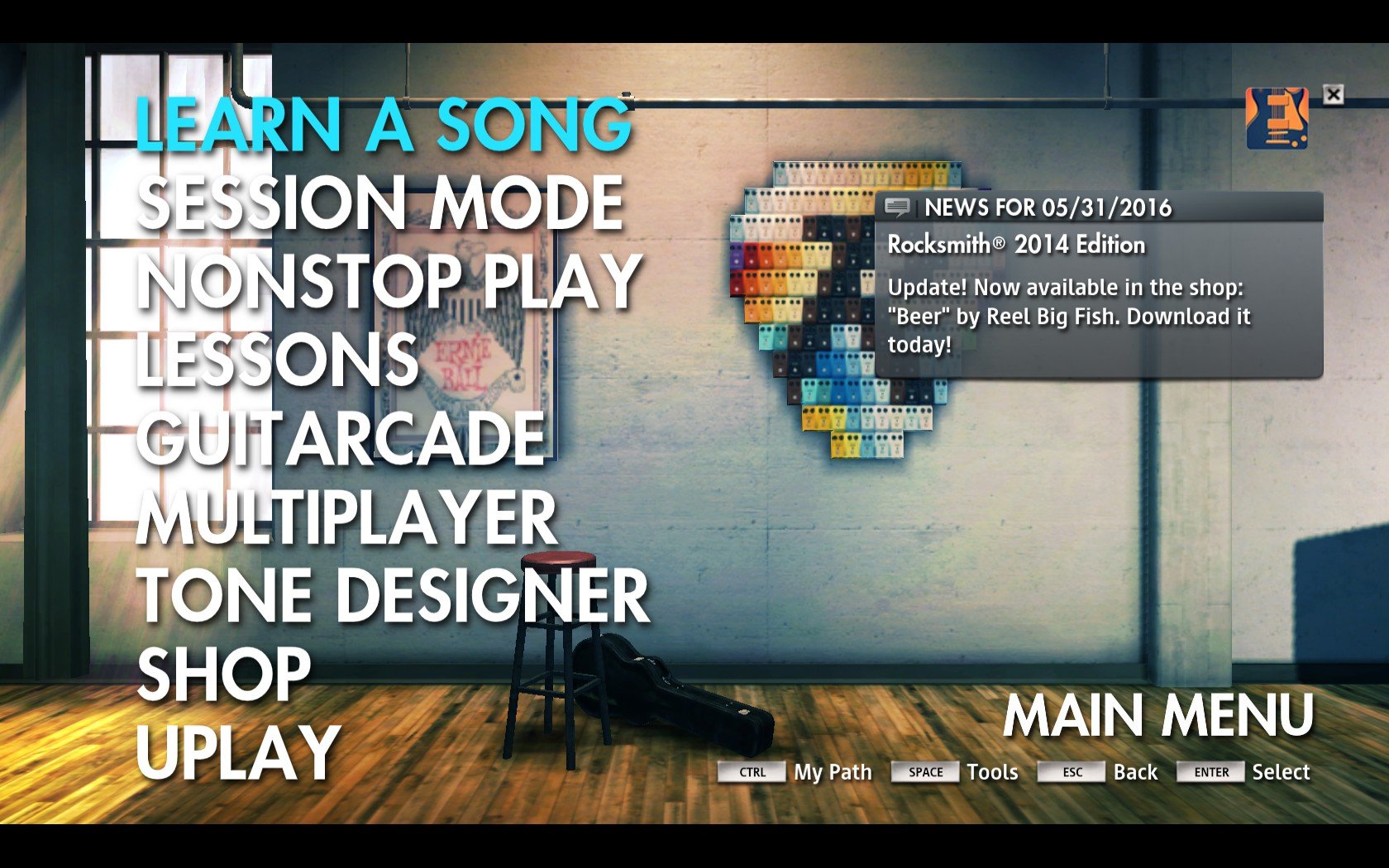
Learn a Song is the main game mode, at least for me. The actual song notes and chords come in a note highway as you play along and the game detects the notes from the audio you are playing.
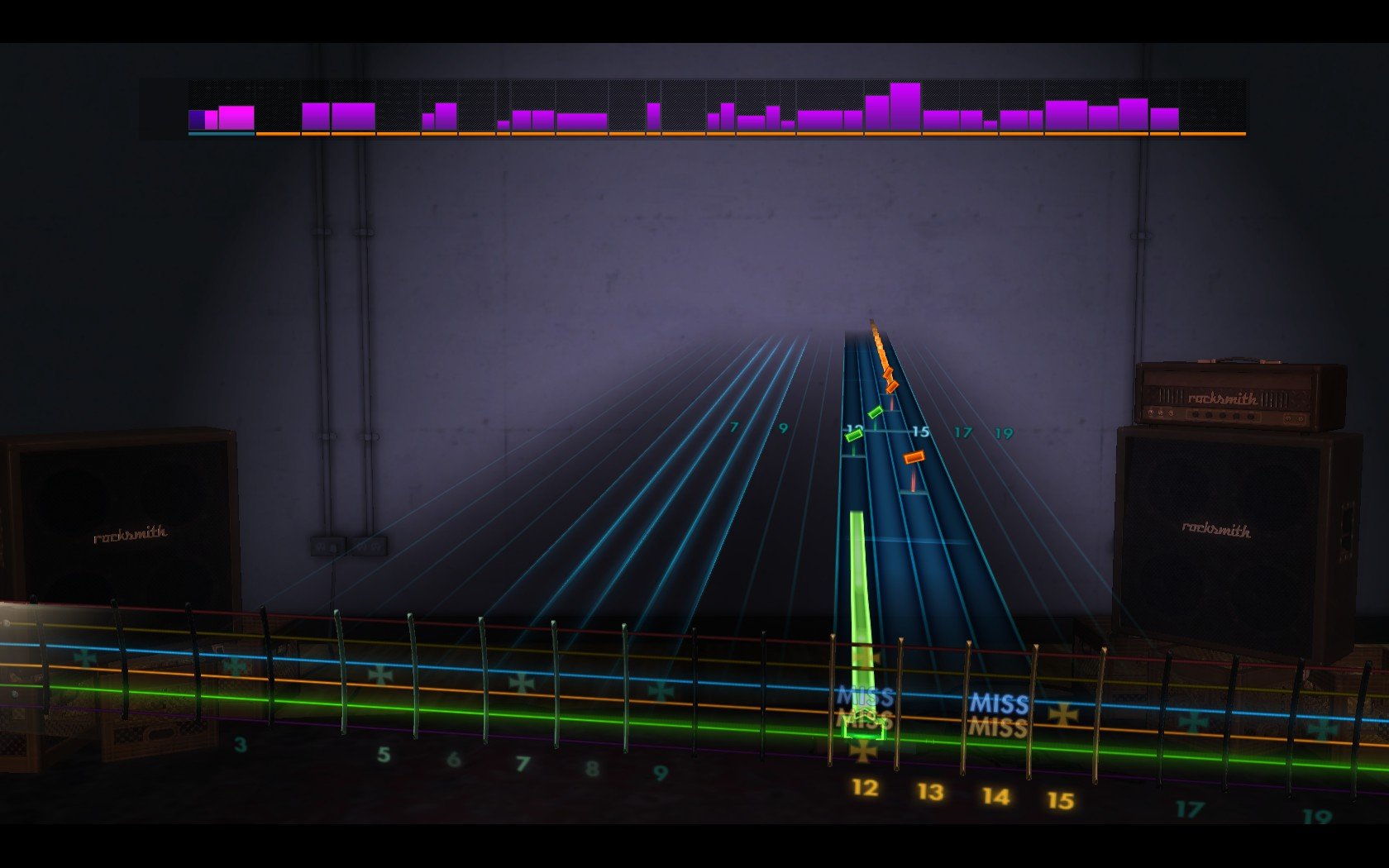
Rocksmith offers what it calls Dynamic Difficulty, which it starts with a simple set of notes then progressively adds more to the song as you hit them right. Personally, I feel that's useful as you are getting the hang of the game. Once you figured out the basics, Riff Repeater is a much more useful tool to learn a song.
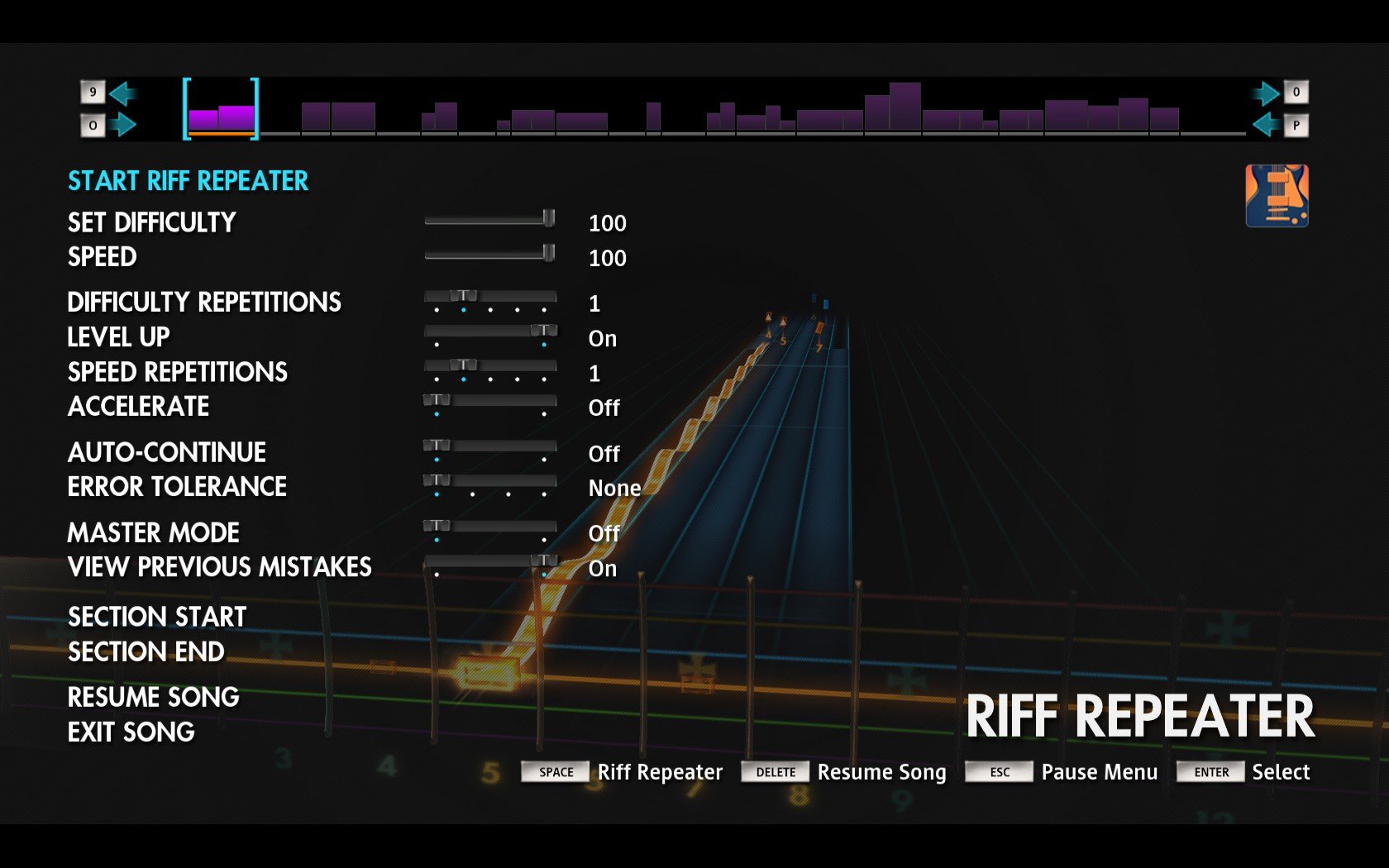
Riff Repeater lets you select certain parts of the song to practice, slowing down as necessary, repeating over and over until you get it right.
As you get better and consistently hit all the notes correctly, Master Mode gets activated and the notes begin to fade until they disappear.
Learn a Song is a friendly environment - you don't get penalized and fail the song for making too many mistakes. At the end of the song, you get a percentage score indicating how well you played, up to 100% in the regular mode or to 110% on master mode. Getting better and increasing this score over and over is very good motivation - something that keeps you from giving up at the hard times of being a guitar beginner. Here's where the gamification pays off.
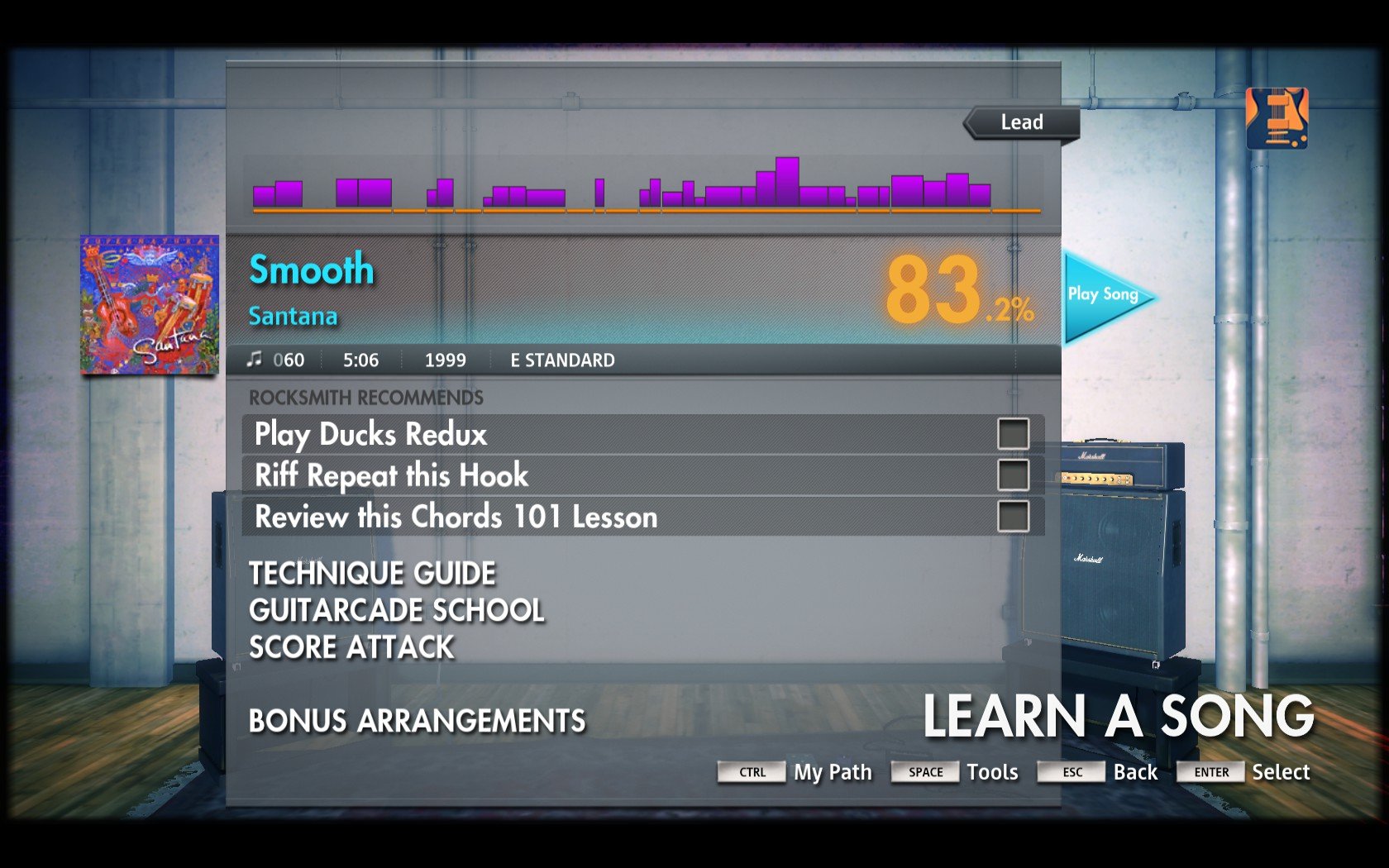
There's a Score Attack option if that's your thing. With four preset levels of difficulty, including master mode, you can compete against the score of others online in a leaderboard, in a mode where you can't fail many sections of the songs or you are disqualified.
Nonstop Play allows you to select a set of songs and play them for a preset set of time.
Session Mode is a very interesting tool. It allows you to tweak a series of options, like scale, tempo, backing band, and others, and freeform Jam to your heart's desire. The interesting part is that the backing plays along responding to your input - if you play harder and faster, so will they.
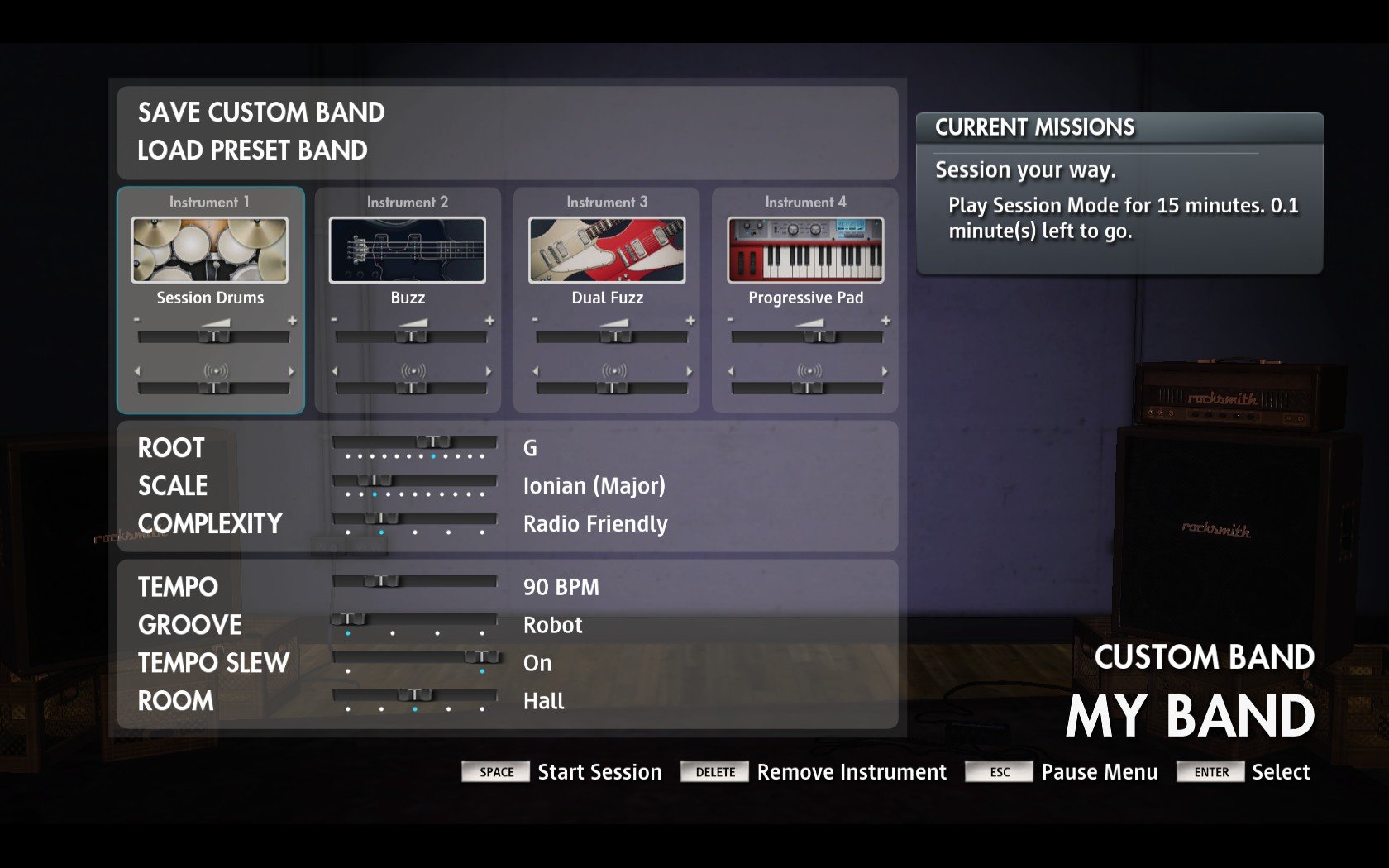
They provide pre-configured effects and tones from every single song you can play in the game, which you can use or customize. If you don't want to jam on Session Mode, you can just hang out on the menus and use Rocksmith as a digital amp.
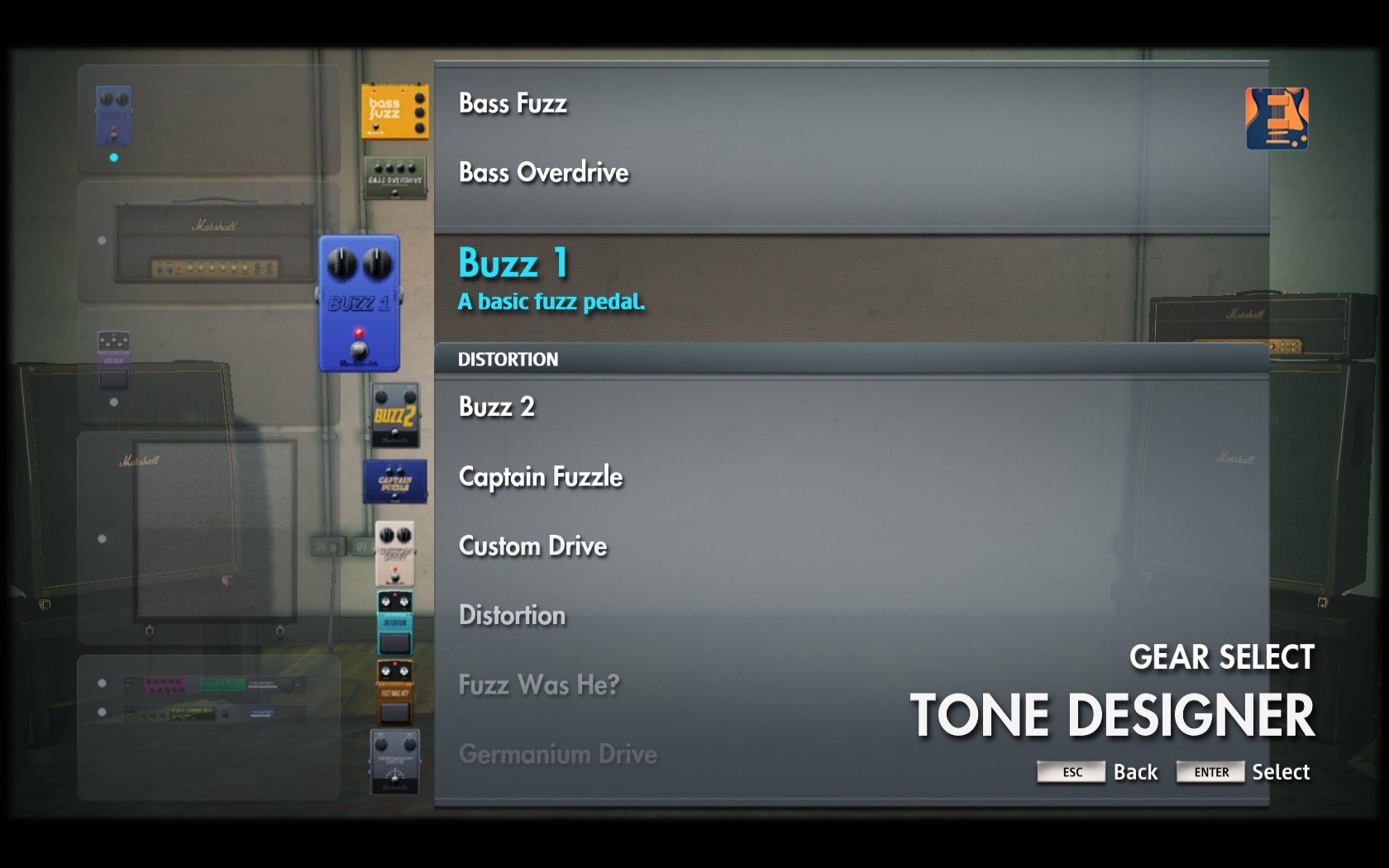
You can play Learn a Song or Session Mode alone or with a friend, locally, each choosing between Lead Guitar, Rythm Guitar or Bass. If you don't own a bass, there's an option of playing emulated bass with an electric guitar.
Playing with a friend is actually a lot of fun, although I'd recommend finding someone at least familiar with the game, as even experienced guitar players will have a learning curve in the beginning getting used to sight reading the song and getting the hang of the game.
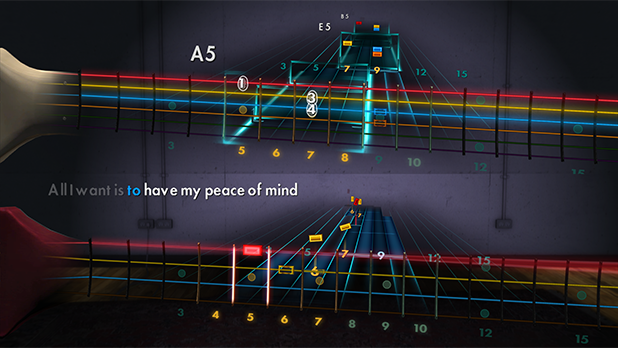
There's a series of Lessons included in the game, from how to change your guitar strings to two-hand tapping, passing through chords, legato, sustain, and others. Although nicely made, with beautiful produced videos and exercises, I don't think many people spend too much time in there, and there are actual songs you could be playing and learning.
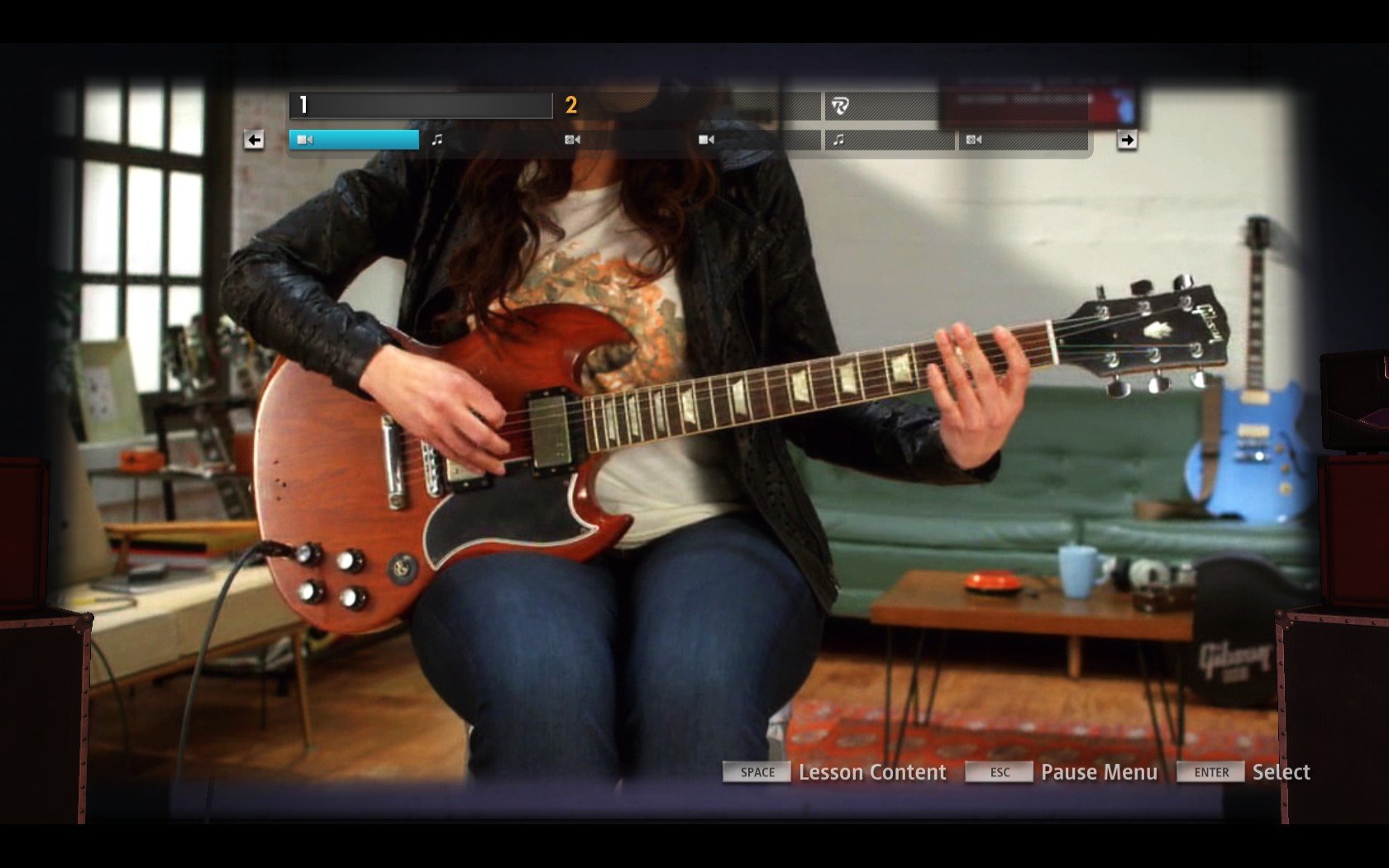
Finally, there's a set of retro-themed Guitarcade games, which are mini-games designed for you to practice a number of guitar fundamentals: scales, positioning, chords, and so on. Like lessons, I think they are cute, but get old kind of quickly.
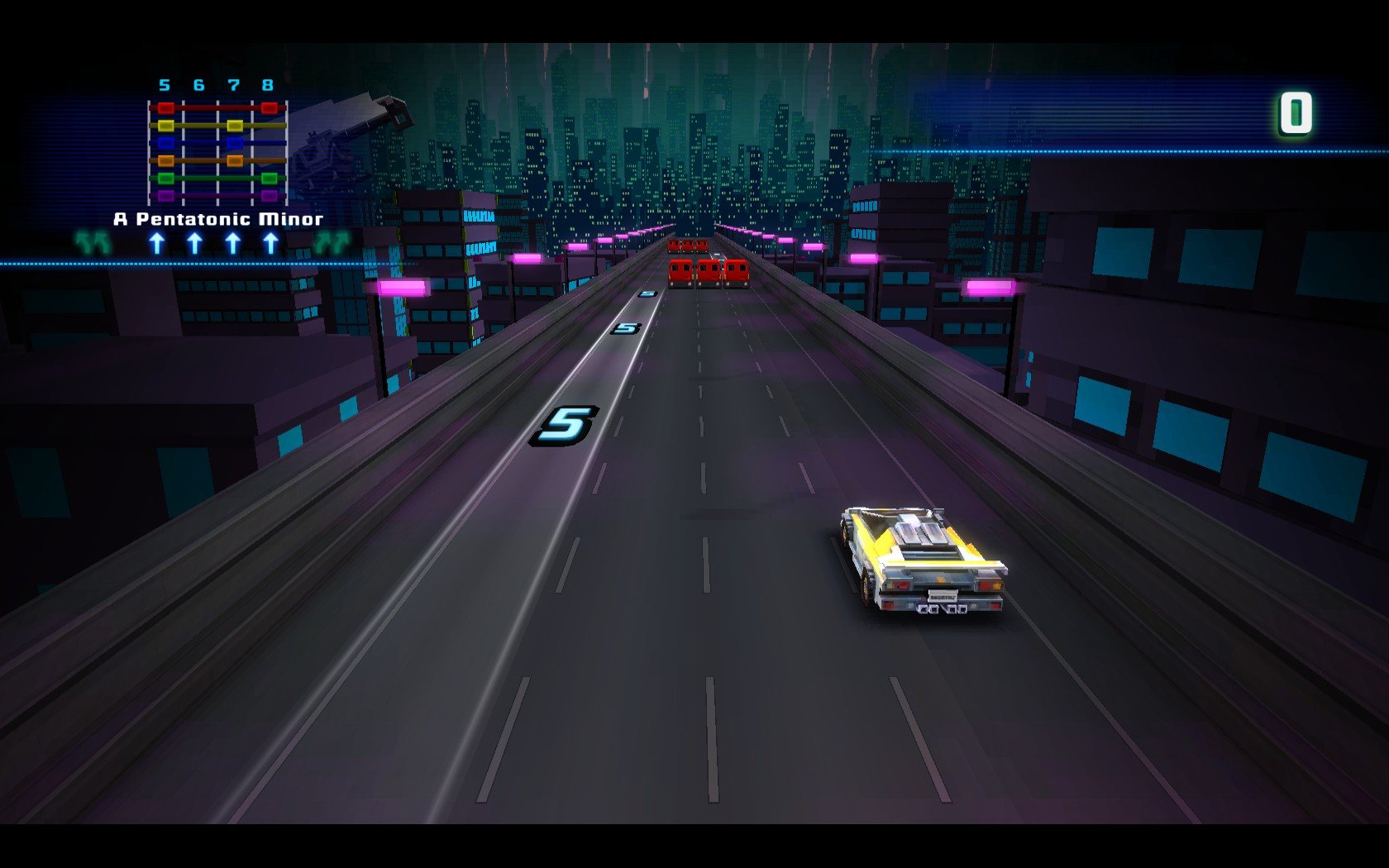
Note Tracking and DLC
All the songs are carefully tracked by their team attempting to replicate the exact notes and chords used to record it. Every week, to this day, they release a new pack of DLC, keeping a very varied and fresh library with almost a thousand songs for you to pick from.
DLC Sales must be good, as they recently announced that instead of releasing a new version of the base game for purchase, they are refreshing it and calling it Rocksmith 2014 Remastered, adding several features requested by users and releasing it for everyone as a free patch, which is due to be out in a few weeks, in early October.
So, is it the best way to learn guitar?
For the first year and I half or so I was learning guitar I did it almost exclusively with Rocksmith. It took me from zero to a fairly decent beginner with ease.
As I noticed there were things I would have a hard time learning from Rocksmith, I found a teacher which I think complements it very well.
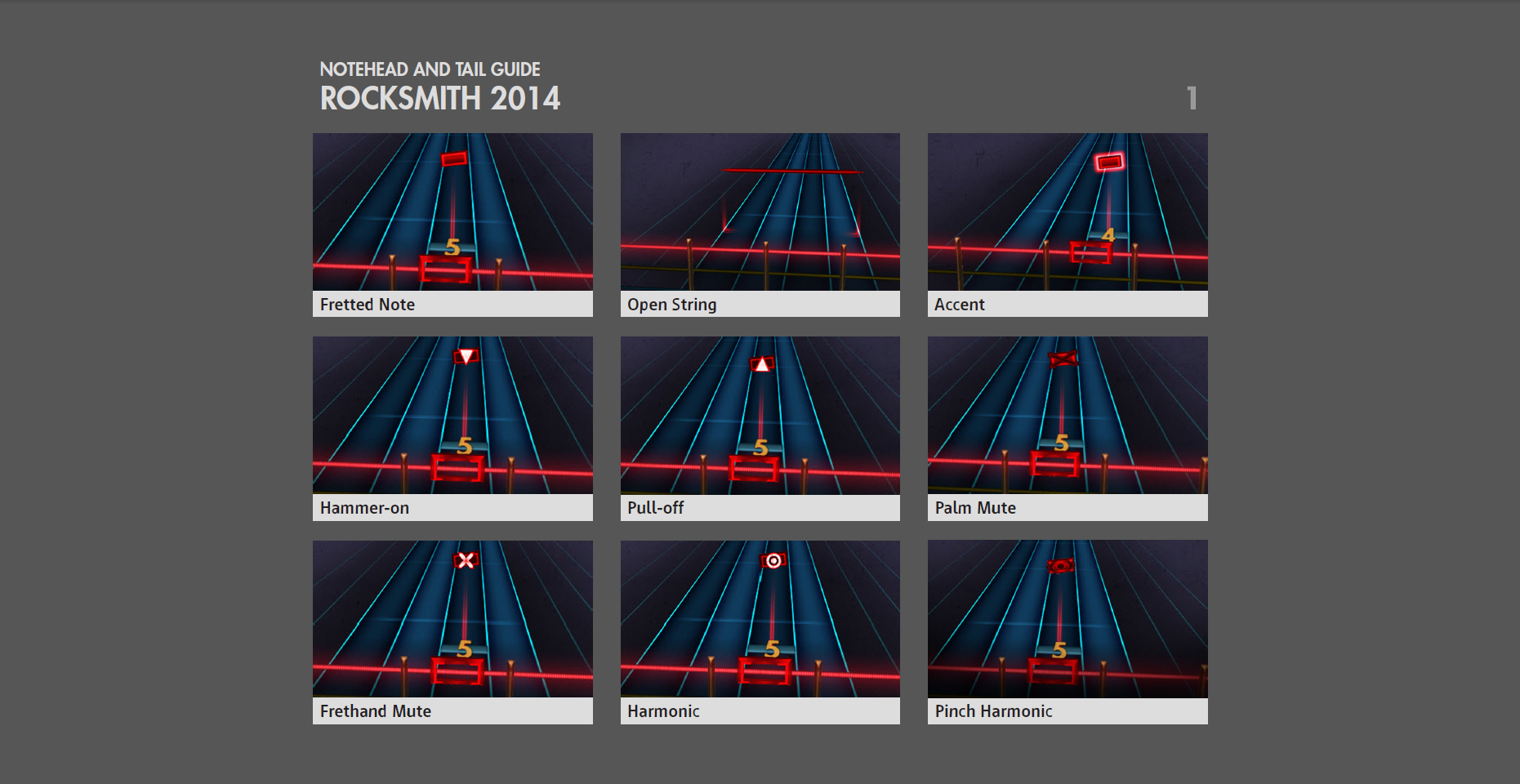
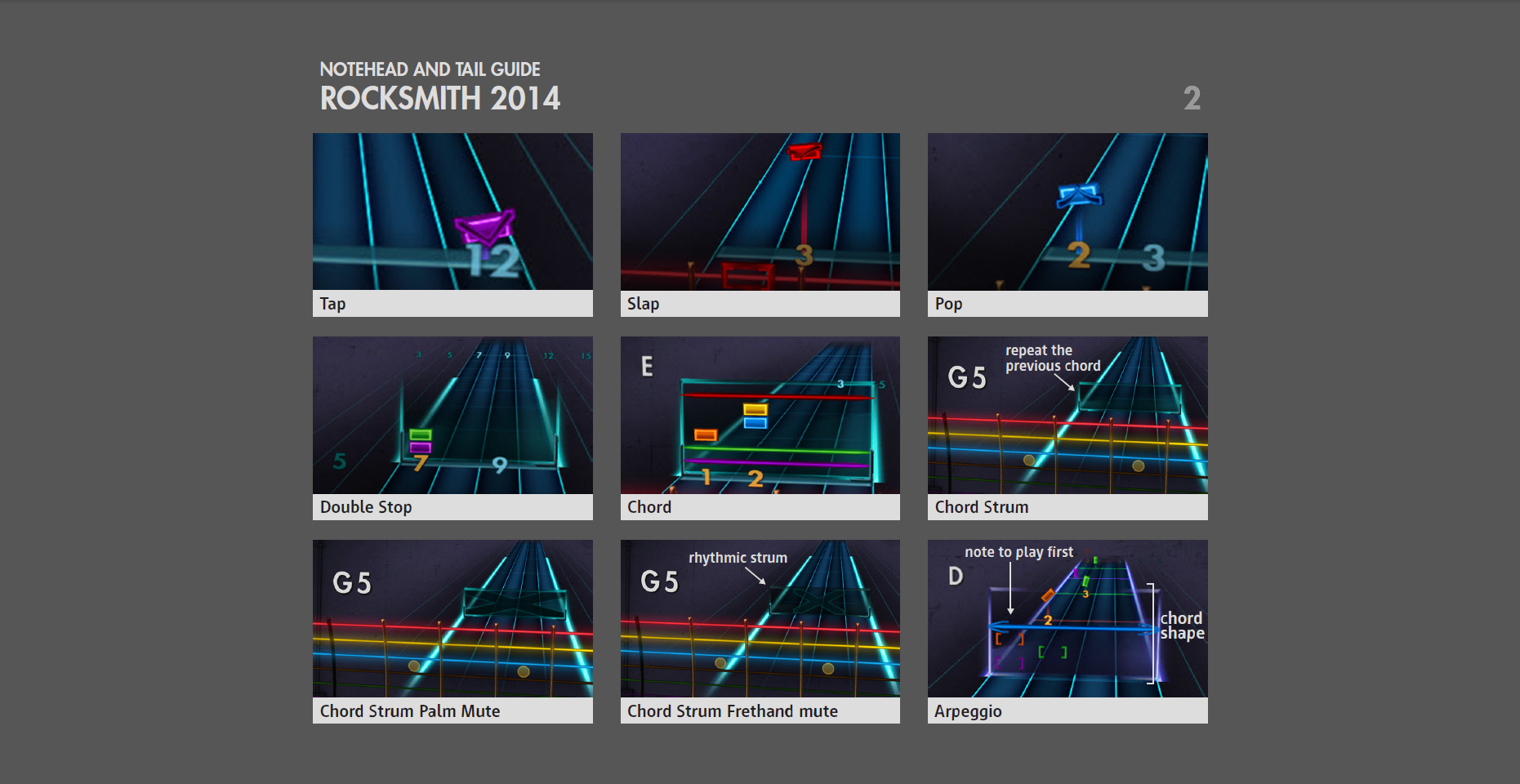
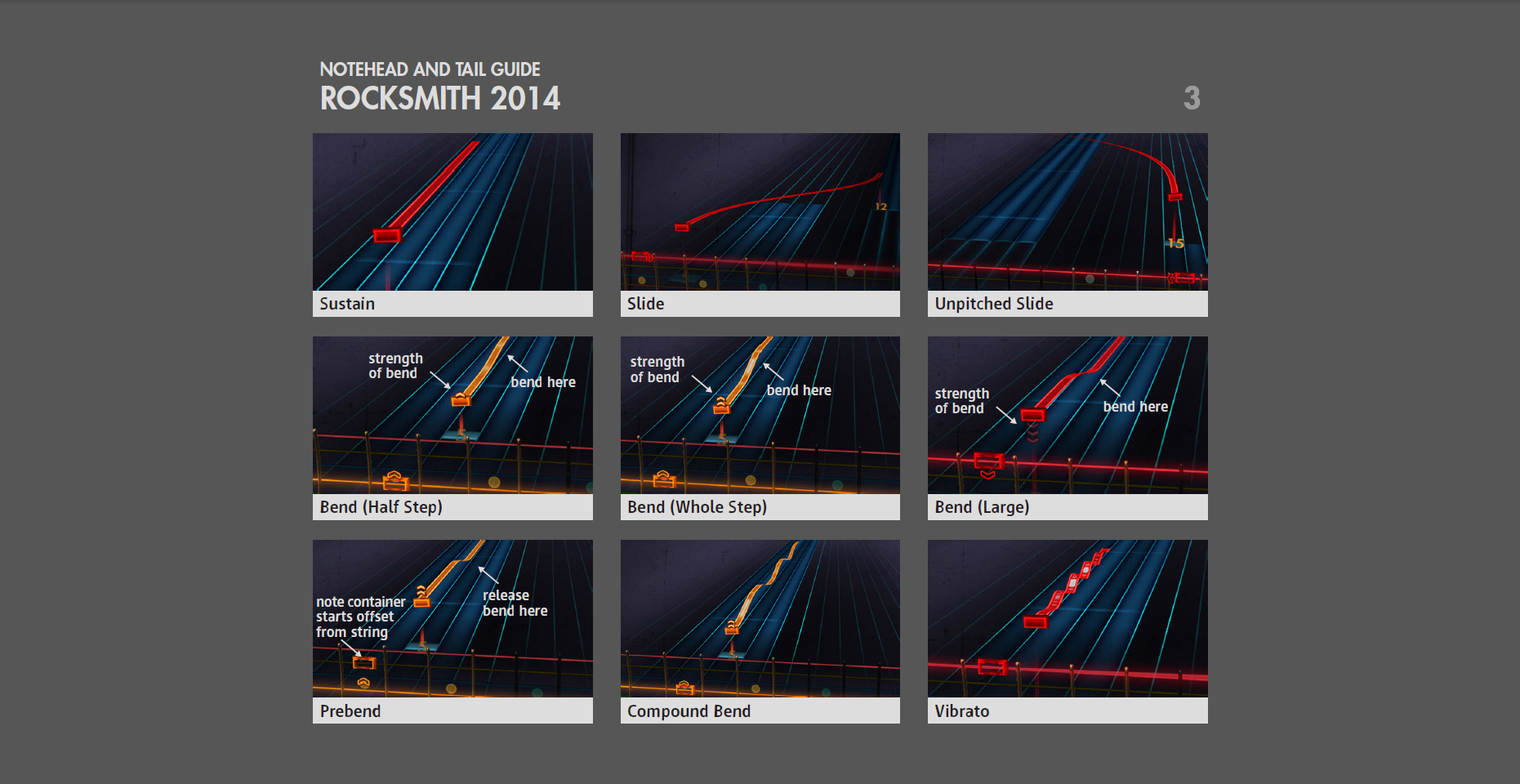
Finger dexterity, speed, agility, overall positioning around the neck of the guitar are things that I believe Rocksmith lets you develop much faster than if you were practicing by yourself.
Arpeggios, strumming patterns, rhythm and timing are some of the things that I felt were harder for me to learn, not for problems on Rocksmith, but for a characteristic of the platform. Memorization was also a big deal: I could nail some riffs on the game that I wouldn't remember at all as soon the song ended.
In short, if you are a beginner and want to start to learn to play guitar, I'd definitely recommend picking up Rocksmith, because I think it will live up to its claim. But don't neglect other sources of learning: find a class or a teacher to complement what it can't teach you. Mix it up.
If you are not a beginner, I'd recommend it as well: it's a lot of fun and keeps you entertained and learning new things.
Do you play Guitar? Have you ever played Rocksmith? What's your take on it?
follow @burnin for more content like this, and resteems are appreciated!
